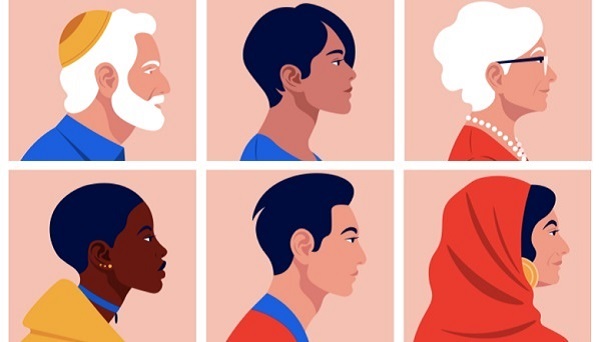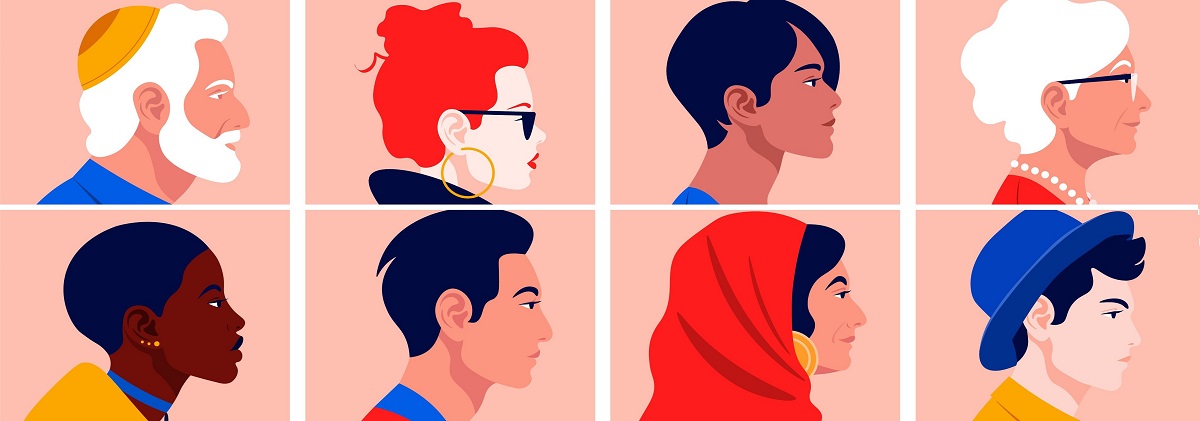

Professors and Research

In a recent study¹, published in Work, Employment and Society, Sabine Bacouël-Jentjens, professor at ISC Paris and her co-authors Sophie Hennekam and Inju Yang have investigated organizational diversity policies in the French context and their perception by first- and second-generation migrants.
France has adopted a universal model of citizenship that does not recognize ethnic minority groups and refrains from collecting statistics based on ethnicity. Therefore, ethnic diversity is not legally framed and ethnic diversity policies on company level are voluntary, not mandatory.
Diversity can refer to differences in general, however, ethnic minority groups are one of the most widely recognized low-status groups, because their physical distinctiveness is readily apparent and thus susceptible to stereotypical categorization and discrimination. Social awareness of ethnic inequalities has increased, and many countries have passed legislation to improve the status of disadvantaged groups and codify their right to equal opportunities. Ethnic diversity management is receiving increasing attention from researchers. Especially in France, where the ethnic minority is significant. Although, previous research has found that first- and second-generation migrants differ in their perception of work-related practices and experiences, this has been relatively under-studied – hence the interest of this study.
In the context of migration, the notion of ‘second generation’ applies to the offspring of parents who migrated to the country in which their children were then born and raised. In other words, second-generation migrants are descendants of people (first-generation migrants) who left their country of origin and migrated to another country.
In 2013, first-generation migrants represented about 9% of the population in France and 37% and 44% of migrants came from Europe and Africa, respectively. The Maghreb accounted for about 30% of migrants, a proportion which has remained stable since 1980. Migration from sub-Saharan Africa started later, and mainly involved former French colonies. Finally, 14% of migrants come from Asia (INSEE, 2016). Descendants of migrants (second-generation migrants) represent about another 10% of the population, 48% had a parent of European origin and 30% had a parent of Maghrebi origin (INSEE, 2012). Although France has a long history of immigration, cultural diversity is a controversial concept as the French model of ‘universal citizenship’ sits in opposition to multiculturalism. The French model expects individuals to assimilate universal national values regardless of their religious or ethnic identity.
Social identity theory is helpful in explaining how and why first- and second-generation migrants appraise diversity management practices differently. Social identity theory developed by the social psychologists Henri Tajfel and John Turner in 1986 suggests that people tend to classify themselves and others into various social categories based on organizational membership, religious affiliation, gender, and age. Studies have shown that individuals continuously shift their circles of identification² in the interplay between an individual’s self-identity (their own notion of who they are) and their social identity (the notion of that individual in external discourses, institutions and culture)³. People differ in the extent to which a particular identity is perceived central to themselves and this has an impact on subsequent perceptions. Ethnic identity involves identification and association with others of the same ethnic group who share one’s cultural practices, nationality, language, or religion. However, ethnic identity may not have automatic importance; how minority groups process relevant information such as prejudice and/or discrimination may depend on the intensity of their ethnic identification. It has been argued that the extent to which migrant workers refer to themselves as migrants influences their perception of discrimination.

Based on a study conducted in a French car manufacturing company amongst first- and second-generation migrant workers, who occupied different functions and various hierarchical positions in the organization, we found that first-generation migrants had a positive perception of diversity management practices while second-generation migrants’ perception was negative.
First-generation migrants
second-generation migrants
This finding is, however, in contrast with recent research, comparing the perception of ingroup discrimination among first- and second-generation migrants in 27 European Union member states, which found that second-generation migrants were less likely to perceive discrimination. The finding that the second-generation migrants in the present study perceived more inequality and discrimination might lead to a vicious circle, in which perceived social immobility heightens the centrality of their ethnic identity and hence increases perceived instances of discrimination. Discrimination experiences intensify ethnic identification and reduce national (host country) identification.
Second-generation migrants might have had more time to interact and socialize with the wider society, which has highlighted their ethnic minority identity. Another explanation lies in their higher linguistic abilities compared with first-generation migrants, making them more aware of the subtleties of unfairness and discrimination, leading to a more negative perception of diversity management practices.
As diversity management has become a fundamental part of the human resources function in many organizations, it is important to understand how diversity management practices are perceived by the employees the policies are intended to benefit. Diversity management is designed with minorities or disadvantaged groups in mind but sometimes does not differentiate between members of a disadvantaged group.